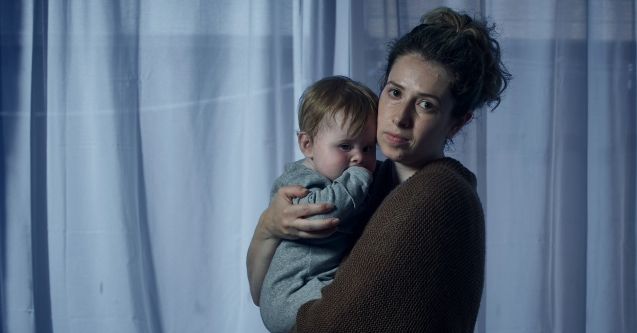Salvos needs donations to help sharp rise in domestic violence victims
15 June 2022

A significant increase in family and domestic violence victims seeking help since the pandemic has left The Salvation Army in need of more funding to provide support.
As The Salvos launches its Red Shield Appeal Matched Giving weekend on June 17-19, aiming to raise $1.6 million, it can be revealed that 62% of family and domestic violence (FDV) victims over the past 12 months said the violence had occurred because of, or was made worse by, the pandemic.
In that time The Salvation Army has supported 5800 women and children experiencing FDV, which is the leading cause of financial stress and homelessness for women and children.
It comes as 18 women this year have been killed by a current or former partner, and as the Fair Work Commission put paid family and domestic violence leave on the political table by giving it in- principle support.
A Salvation Army survey found people who had experienced FDV last year were more likely to be homeless, or at risk of homelessness, because of the violence. Of respondents who had experienced FDV, 17% were homeless and 49% said homelessness or the risk of homelessness was their greatest challenge in the past year.
The survey also found:
- 36% of FDV victims could not afford a decent and secure home
- 76% said being able to afford enough food was one of their biggest challenges
- 93% had found it difficult to meet necessary living expenses, such as housing, utilities, food and health care
- 87% could not save at least $500 for an emergency
- 73% could not afford medical or dental treatment when needed
- 66% went without meals because of a shortage of money
The survey found some of the greatest challenges for people who had experienced FDV were managing their mental health (86%); feeling socially isolated (81%); finding or keeping a safe and affordable place to live (44%); finding or maintaining employment (41%).
Children also faced significant emotional and economic disadvantage. In the past year, 69% of FDV victims could not afford for their children to do activities outside school; 53% could not afford clothes for school; 44% could not afford school trips or excursions; and 38% could not afford dental or medical treatment for their children. The children’s greatest challenges included their mental health (71%) and being separated from extended family and friends (70%).
The survey further found that experiencing FDV was:
- Twice as likely among women than men
- Three times as likely among single parent households than couples with children
- Twice as likely among those on government payments than those in paid employment
Salvation Army Family and Domestic Violence NSW and ACT state manager Petra Jenkins said family and domestic violence was “so widespread ... anyone can be violent and abusive and anyone can be a victim of that”.
But she added there are other higher risk factors, such as being of Aboriginal or Torres Strait Islander descent, living with a disability, being economically marginalised, coming from a non- English-speaking background, having a family history of violence, or lacking a support network or a capacity to reach out to others for help.
Ms Jenkins said during the pandemic “a lot of previously coercive behaviour crossed over into physical violence”. And while many victims were unable to seek help during the pandemic, “now there has been an increase in demand in our Family Violence Program – we jumped from 33 calls a day to 100 calls, and it is still going up,” Ms Jenkins said.
The Salvation Army aims to raise $1.6 million during its Matched Giving Weekend on June 17-19, when donations from Transformational Gift donors are matched by existing Leading Pledge donors such as Myer Community Fund and Bunnings. In other words, every donation is doubled.
The campaign is backed by many high-profile Australian women, including ABC deputy chair, author and #CelebratingWomen creator Dr Kirstin Ferguson and Married At First Sight relationship expert Melanie Schilling.
Ms Jenkins said one significant need was for funding to transform old group boarding-style homes into studios and small units to allow families the privacy they need to heal, while also benefiting from support services on site.
While up to $20 million was needed to redevelop such group homes, Ms Jenkins said any donation was valuable.
“Donations allow us to do all the other stuff that is so important to their recovery, and helping them realise it is not their fault – and they are valued,” Ms Jenkins said.
The Salvation Army Matched Giving Weekend runs between June 17-19, any donation made during this time will be matched my Leading Pledge donors. The Red Shield Appeal runs until June 30. Donate by calling 13 SALVOS (13 72 58) or click here.